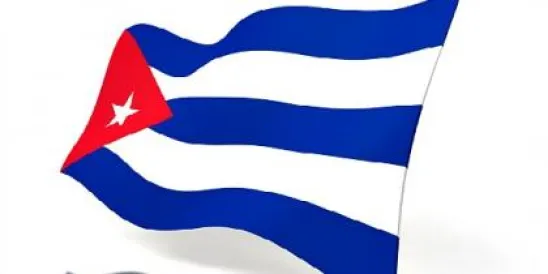The U.S. Department of the Treasury and the U.S. Department of Commerce have released new regulations that loosen restrictions on trade and travel with Cuba.
Revised Cuba Assets Control Sanctions Regulations
Effective January 16, 2015, the U.S. Department of the Treasury’s Office of Foreign Assets Control (OFAC) revised the Cuba Assets Control Regulations (CACR, 31 CFR Part 515) to relax some, but not all, restrictions. Here is a summary of some of the key changes in the new OFAC regulations.
Travel to Cuba for Authorized Purposes
OFAC amended sections 515.533, 515.545, 515.560–515.567, and 515.574–515.576 to authorize by general license certain travel-related transactions and other transactions incident to activities within the 12 existing travel categories in OFAC’s regulations—such as for educational activities (including people-to-people travel), journalistic and religious activities, professional meetings, and humanitarian projects—now without the need for case-by-case specific licensing.
No further permission from OFAC is now required to engage in transactions by a person who meets all criteria in a travel general license. Individuals who wish to engage in activities that may fall within the scope of a general license should review the relevant general licenses contained in the CACR to determine whether their travel-related transactions are covered by such general licenses. The general license authorizations contain certain restrictions appropriate to each category of activities and must be complied with. Each traveler who relies on a general license for travel must retain specific records for five years that indicate that the travel was covered by the terms of a general license.
Persons subject to U.S. jurisdiction who wish to engage in any travel within the 12 categories of activities specified in the CACR who do not meet the requirements of a general license will need to apply for a specific license from OFAC.
Travel for tourist activities is not authorized by these changes, and is prohibited by statute.
Cuban Travel Services
OFAC amended section 515.572 to permit persons subject to U.S. jurisdiction, including travel agents and airlines, to provide authorized travel and carrier services for authorized travelers and certain entities to forward authorized remittances without the need for specific licenses from OFAC. Prior to these changes, such services required an OFAC-specific license.
Remittances
OFAC amended section 515.570 to raise the limits on remittances from $500 to $2,000 per quarter that may be sent to Cuban nationals and to generally authorize, as is done now when appropriate, on a case-by-case basis, without limitation, for remittances for humanitarian projects, support for the Cuban people, and the development of private business in Cuba. Section 515.560(c) was amended to raise the total remittances that a traveler may carry to Cuba from $3,000 to $10,000.
Credit and Debit Cards, Per-Diem Expenditures in Cuba, and the Importation of Certain Goods and Services
OFAC amended section 515.560 and added a new section 515.584 to authorize the use of U.S. credit and debit cards in Cuba for travel-related and other transactions and to allow U.S. financial institutions to enroll Cuban merchants in the processing of such transactions.
OFAC also amended section 515.560 to eliminate the former dollar-per-diem limitation on authorized travelers’ spending in Cuba. Authorized travelers who return from Cuba are now allowed to import into the United States up to $400 worth of goods from Cuba—including up to $100 in alcohol or tobacco products.
Telecommunications
OFAC amended section 515.542 to generally authorize transactions that establish mechanisms to provide commercial telecommunications services that link third countries and Cuba and within Cuba.
OFAC amended section 515.578 to authorize persons subject to U.S. jurisdiction to provide additional services incident to Internet-based communications and related communications to certain exportations and reexportations of communications items.
Vessels Calling in Cuba
OFAC amended section 515.550 to authorize foreign vessels to enter the United States after engaging in certain trade, but not all trade, with Cuba. Prior regulations in general prohibited entry of all vessels that had called on Cuba within 180 days of entry into the United States.
Many Transactions with Cuba Are Still Not Authorized
New investments in all sectors in Cuba generally by persons subject to U.S. jurisdiction have not been authorized. Exports of all items, technologies, and services to Cuba, absent a specific license, have not been authorized. Such transactions continue to require a specific license granted by OFAC and a decision to grant or deny such license will be based on the facts and circumstances contained in a particular OFAC license application.
Revised Export Administration Regulations
Also effective January 16, 2015, the U.S. Department of Commerce’s Bureau of Industry and Security (BIS) has revised the Export Administration Regulations (EAR, 15 CFR Parts 732-799) to relax some, but not all, EAR export license restrictions. Here is a summary of some of the key changes in the new EAR regulations.
New EAR License Exception Support for the Cuban People
BIS created a new License Exception Support for the Cuban People (SCP) in a new regulation, 15 CFR § 740.21 of the EAR. Prior to publication of this new license exception, the export or reexport to Cuba of items now eligible under this new license exception generally required a license from BIS.
License Exception SCP authorizes the export and reexport of commercially sold or donated
-
building materials, equipment, and tools for use by the private sector to construct or renovate privately owned buildings, including privately owned residences, businesses, places of worship, and buildings for private-sector social or recreational use;
-
tools and equipment for private-sector agricultural activity; and
-
tools, equipment, supplies, and instruments for use by private-sector entrepreneurs. Note that this provision will, for example, allow the export of such items to private-sector entrepreneurs, such as auto mechanics, barbers and hairstylists, and restaurateurs.
Items eligible for export and reexport to Cuba pursuant to this portion of License Exception SCP are limited to those designated as EAR99 or controlled on the Commerce Control List (CCL) only for antiterrorism (AT) reasons.
BIS-Expanded License Exception Consumer Communications Devices
BIS revised the License Exception Consumer Communications Devices (CCD) in 15 CFR § 740.19 of the EAR to remove the donation requirement and to update the list of eligible items.
Prior to this new rule’s publication, License Exception CCD authorized the export or reexport of only donated items, which limited the incentive to send these items to Cuba. This rule removes the donation requirement in License Exception CCD, thereby allowing export or reexport of eligible items for commercial sale or donation to eligible recipients in Cuba.
Expansion of License Exception Gift Parcels and Humanitarian Donations
License Exception Gift Parcels and Humanitarian Donations (GFT) in 15 CFR § 740.12 of the EAR has removed the note that excludes from eligibility consolidated shipments of multiple parcels for delivery to individuals who reside in a foreign country. Removing the note allows export and reexport of multiple gift parcels in a single shipment pursuant to License Exception GFT. All the other terms and conditions of the license exception remain unchanged.
New Licensing Policy for Environmental Protection
BIS amended the licensing policy for Cuba in 15 CFR § 746.2 of the EAR to add a general policy of approval for licenses for exports and reexports of items necessary for the environmental protection of U.S. and international air quality, waters, and coastlines (including items related to renewable energy or energy efficiency).




 />i
/>i

